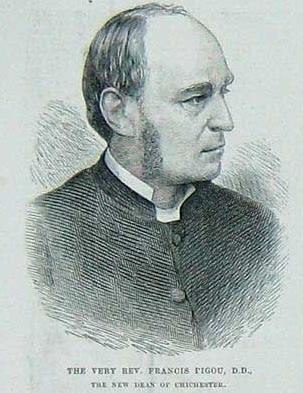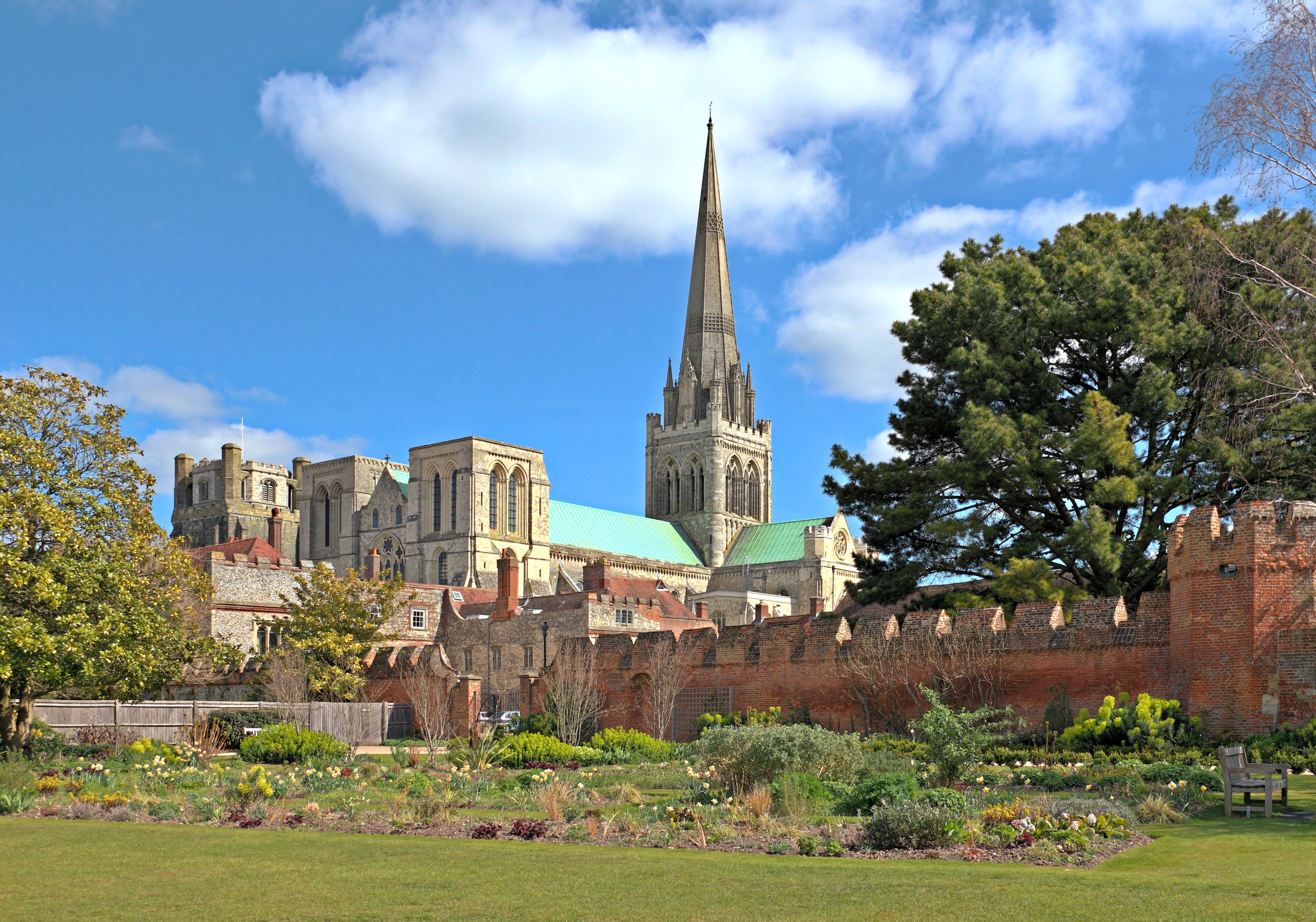|
Richard Randall (priest)
Richard William Randall (13 April 1824 – 23 December 1906) was an Anglican priest in the second half of the 19th century and the early part of the 20th. Early life Randall was born, into an ecclesiastical family, the eldest son of the Ven. James Randall, in Bloomsbury on 13 April 1824. Richard Randall was first educated at Winchester College, from there he matriculated on 12 May 1842, aged 18 and studied at Christ Church, Oxford. Retrieved 17 March 2012 He took his B.A. in 1846 and was awarded his M.A. in 1849. He received the degree of D.D. from his university in 1892. Career Randall was ordained in 1847. He was a Curate at St Mary, Binfield, then succeeded Archdeacon Manning (later Cardinal Manning) as Rector of St Mary Magdalene West Lavington, before becoming the first Vicar of All Saints, Clifton, a post he held between 1868 and 1892. While at Clifton he reintroduced the ancient Catholic usages. The principal service on Sunday morning was a Choral Eucharist, presen ... [...More Info...] [...Related Items...] OR: [Wikipedia] [Google] [Baidu] |
Rector (ecclesiastical)
A rector is, in an ecclesiastical sense, a cleric who functions as an administrative leader in some Christian denominations. In contrast, a vicar is also a cleric but functions as an assistant and representative of an administrative leader. Ancient usage In ancient times bishops, as rulers of cities and provinces, especially in the Papal States, were called rectors, as were administrators of the patrimony of the Church (e.g. '). The Latin term ' was used by Pope Gregory I in ''Regula Pastoralis'' as equivalent to the Latin term ' (shepherd). Roman Catholic Church In the Roman Catholic Church, a rector is a person who holds the ''office'' of presiding over an ecclesiastical institution. The institution may be a particular building—such as a church (called his rectory church) or shrine—or it may be an organization, such as a parish, a mission or quasi-parish, a seminary or house of studies, a university, a hospital, or a community of clerics or religious. If a r ... [...More Info...] [...Related Items...] OR: [Wikipedia] [Google] [Baidu] |
1824 Births
Eighteen or 18 may refer to: * 18 (number), the natural number following 17 and preceding 19 * one of the years 18 BC, AD 18, 1918, 2018 Film, television and entertainment * ''18'' (film), a 1993 Taiwanese experimental film based on the short story ''God's Dice'' * ''Eighteen'' (film), a 2005 Canadian dramatic feature film * 18 (British Board of Film Classification), a film rating in the United Kingdom, also used in Ireland by the Irish Film Classification Office * 18 (''Dragon Ball''), a character in the ''Dragon Ball'' franchise * "Eighteen", a 2006 episode of the animated television series ''12 oz. Mouse'' Music Albums * ''18'' (Moby album), 2002 * ''18'' (Nana Kitade album), 2005 * '' 18...'', 2009 debut album by G.E.M. Songs * "18" (5 Seconds of Summer song), from their 2014 eponymous debut album * "18" (One Direction song), from their 2014 studio album ''Four'' * "18", by Anarbor from their 2013 studio album '' Burnout'' * "I'm Eighteen", by Alice Cooper common ... [...More Info...] [...Related Items...] OR: [Wikipedia] [Google] [Baidu] |
Francis Pigou
Francis Pigou (3 January 1832 – 25 January 1916) was an Anglican priest in the second half of the 19th century and the early part of the 20th. Career He was born in Baden-Baden and educated at Ripon Grammar School and Trinity College, Dublin. He was ordained in 1856 and became a Curate at St Andrew, Stoke Talmage, then Chaplain at Marbœuf Chapel, Paris. He held incumbencies at St Peter, Vere Street, St Philip, Regent Street and St George, Doncaster during which time he became an Honorary Chaplain to the Queen. He was Rural Dean of Halifax from 1875 and held an honorary canonry in the Chapter of Ripon Cathedral. He was also chaplain to the 2nd West York Yeomanry Cavalry and to the Rifle Volunteers. In 1888 he became Dean of Chichester. Pigou found life to be ''unbearably sleepy'' in Chichester and castigated it ''unsparingly'' complaining that there was ''so little to do''.Lowther Clarke. Chichester Cathedral in the Nineteenth Century. p. 16 While at Chichester he ... [...More Info...] [...Related Items...] OR: [Wikipedia] [Google] [Baidu] |
Project Canterbury
Project Canterbury (sometimes abbreviated as PC) is an online archive of material related to the history of Anglicanism. It was founded by Richard Mammana, Jr. in 1999 with a grant from Episcopal Church Presiding Bishop Frank T. Griswold, and is hosted by the non-profit Society of Archbishop Justus. The episcopal patron of the site is Terry Brown, retired bishop of Malaita in the Church of the Province of Melanesia; Geoffrey Rowell Bishop of Gibraltar in Europe The Bishop of Gibraltar in Europe, commonly known as the Bishop in Europe, is the ordinary of the Church of England's Diocese in Europe in the Province of Canterbury. Overview The diocese provides the ministry of Anglican chaplains, not only ... had served in this capacity from 1999 until his death. Volunteer transcribers prepare material for the site, which incorporates modern scholarly material, primary source texts, photographic images and engravings. Imprint Since 2018, Project Canterbury is also an imprint of ... [...More Info...] [...Related Items...] OR: [Wikipedia] [Google] [Baidu] |
Bournemouth
Bournemouth () is a coastal resort town in the Bournemouth, Christchurch and Poole council area of Dorset, England. At the 2011 census, the town had a population of 183,491, making it the largest town in Dorset. It is situated on the Southern England, English south coast, equidistant () from Dorchester, Dorset, Dorchester and Southampton. Bournemouth is part of the South East Dorset conurbation, which has a population of 465,000. Before it was founded in 1810 by Lewis Tregonwell, the area was a deserted heathland occasionally visited by fishermen and smugglers. Initially marketed as a health resort, the town received a boost when it appeared in Augustus Granville's 1841 book, ''The Spas of England''. Bournemouth's growth accelerated with the arrival of the railway, and it became a town in 1870. Part of the Historic counties of England, historic county of Hampshire, Bournemouth joined Dorset for administrative purposes following the Local Government Act 1972, reorganisation of l ... [...More Info...] [...Related Items...] OR: [Wikipedia] [Google] [Baidu] |
Hallelujah Chorus
''Messiah'' ( HWV 56), the English-language oratorio composed by George Frideric Handel in 1741, is structured in three parts. This listing covers Part II in a table and comments on individual movements, reflecting the relation of the musical setting to the text. Part I begins with the prophecy of the Messiah and his birth, shows the annunciation to the shepherds and reflects the Messiah's deeds on earth. Part II covers the Passion in nine movements including the oratorio's longest movement, an air for alto ''He was despised'', then mentions death, resurrection, ascension, and reflects the spreading of the Gospel and its rejection. The part is concluded by a scene called "God's Triumph" that culminates in the ''Hallelujah'' chorus. Part III of the oratorio concentrates on Paul's teaching of the resurrection of the dead and Christ's glorification in heaven. Messiah, the oratorio The libretto by Charles Jennens is entirely drawn from the Bible, mostly from the King James ... [...More Info...] [...Related Items...] OR: [Wikipedia] [Google] [Baidu] |
Handel
George Frideric (or Frederick) Handel (; baptised , ; 23 February 1685 – 14 April 1759) was a German-British Baroque composer well known for his operas, oratorios, anthems, concerti grossi, and organ concertos. Handel received his training in Halle and worked as a composer in Hamburg and Italy before settling in London in 1712, where he spent the bulk of his career and became a naturalised British subject in 1727. He was strongly influenced both by the middle-German polyphonic choral tradition and by composers of the Italian Baroque. In turn, Handel's music forms one of the peaks of the "high baroque" style, bringing Italian opera to its highest development, creating the genres of English oratorio and organ concerto, and introducing a new style into English church music. He is consistently recognized as one of the greatest composers of his age. Handel started three commercial opera companies to supply the English nobility with Italian opera. In 1737, he had a physical break ... [...More Info...] [...Related Items...] OR: [Wikipedia] [Google] [Baidu] |
Dean Of Chichester
The Dean of Chichester is the dean of Chichester Cathedral in Sussex, England. Bishop Ralph is credited with the foundation of the current cathedral after the original structure built by Stigand was largely destroyed by fire in 1114. Ralph did not confine his activities just to rebuilding the cathedral; he provided for a more complete constitution of his chapter by also creating the offices of ''Dean, Precentor, Chancellor and Treasurer.'' The function of these four officials was to ensure the proper conduct of church services, the care of the church building and the supervision of subordinates.Stephens. ''Memorials'' p. 323 Beneath these four officials were the canons of the cathedral who in the medieval period were about twenty six in number.Hobbs. ''Chichester Cathedral''. p. 13 The dean would have been elected by the canons, and would have the power to act in administrative matters only with their consent. The dean and his staff, however, were subject to the bishop's autho ... [...More Info...] [...Related Items...] OR: [Wikipedia] [Google] [Baidu] |
Bishop Of Bristol
A bishop is an ordained clergy member who is entrusted with a position of authority and oversight in a religious institution. In Christianity, bishops are normally responsible for the governance of dioceses. The role or office of bishop is called episcopacy. Organizationally, several Christian denominations utilize ecclesiastical structures that call for the position of bishops, while other denominations have dispensed with this office, seeing it as a symbol of power. Bishops have also exercised political authority. Traditionally, bishops claim apostolic succession, a direct historical lineage dating back to the original Twelve Apostles or Saint Paul. The bishops are by doctrine understood as those who possess the full priesthood given by Jesus Christ, and therefore may ordain other clergy, including other bishops. A person ordained as a deacon, priest (i.e. presbyter), and then bishop is understood to hold the fullness of the ministerial priesthood, given responsibility b ... [...More Info...] [...Related Items...] OR: [Wikipedia] [Google] [Baidu] |
Clifton, Bedfordshire
Clifton is a village and civil parish in the English county of Bedfordshire. The original hundred of Clifton is named after it. The original "hundred" comprised: The Parishes of Arlesey; Campton-Cum- Shefford; Chicksands; Clifton; Henlow; Holwell; Meppershall; part of Shillington; Lower Stondon; Little Holwell; Stotfold; Upper Stondon. The first recorded reference to Clifton is in 944 when it is referred to as Cliftune. Clifton is also mentioned in the Domesday Book. The entry reads: ''Cliftone: William de Cairon from Bishop of Lincoln, Eudo FitzHubert and Nigel d'Aubigny; Leofwin from St. Benedict's of Ramsey; Alwin from Countess Judith. 2 mills.'' All Saints Church, built in the 14th and 15th centuries was heavily restored in the nineteenth century. Clifton village is now a popular place to live as a consequence of its good transport links and proximity to the railway station at Arlesey. Clifton was voted Bedfordshire Village of the Year in 2003, 2005 and 2009. It is t ... [...More Info...] [...Related Items...] OR: [Wikipedia] [Google] [Baidu] |






